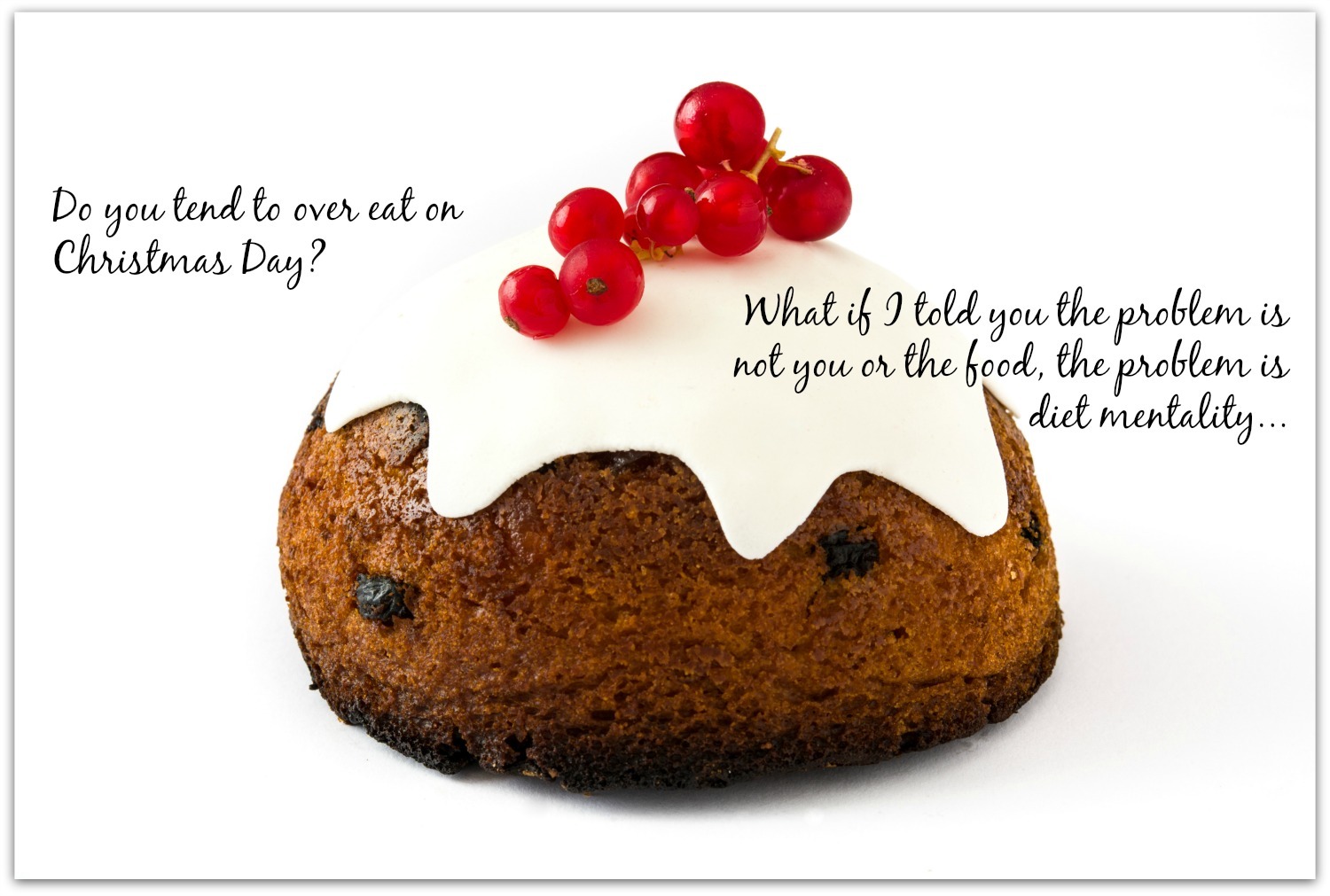Want to avoid feeling stuffed full this Christmas? It’s time to stop trying to “be good”.

Do you tend to overeat on Christmas Day? What if I told you the problem is not you or the food, the problem is diet mentality.
If you happen to eat more than usual on Christmas day (or any other gathering for that matter), you are behaving as humans have done for thousands of years where having an abundance of food on celebration days is part of how we celebrate and connect with others. Bottom line is that there is nothing wrong with doing this and the pleasure and satisfaction we receive from sharing and enjoying food with others is fundamental to our health.
For some people though, Christmas day can feel like a minefield, creating anxiety and distress around food and/or leave you feeling so stuffed full, the pleasure is diminished. While for some there will be other factors involved, I am going to put a huge chunk of the blame on diet culture and its obsession with “health” and weight.
We live in a diet culture where thinking about food in terms of macros (carbs, protein, fat), moral value (being good or bad) and our body size has become some normalised, few people stop to recognise the madness and futility behind it all. Even for those not dieting (or following “healthy lifestyle plan”), this creates a diet mentality where food is seen as good or bad, right or wrong, healthy or unhealthy and the belief that how we eat is the key driver for our body weight (tip – your body weight is much more complex than the food you eat). There’s a constant sense we must make the “better” choice, not eat too much, and if we do, we must pay a penance with more exercise, or being “good” the next day. Paradoxically, it is this very diet mentality that results in people overeating on days such as Christmas or any celebratory party.
So why does our diet culture and diet mentality lead to overeating?
It is pure human psychology to desire more what is off limits or forbidden. Deprivation heightens our desire and we are more likely to think about and crave those foods that we restrict. How often do you find yourself carving lettuce over chocolate? On that point though, just as it is natural to want something more when it’s less available, most people have had the experience of craving salad after several days of eating out with richer food or more highly processed food – so it works both ways.
Do you routinely restrict food you enjoy? When that food becomes available, are you more likely to go to nuts and “splurge”? If you’re nodding your head, you are a normal healthy human. This type of behaviour is known as the “I’ll get while I can effect”, “the what the hell effect” or “the last supper effect” where you think “I’m just gonna write off today and I’ll be good tomorrow/starting Monday”. These effect are described in studies in a number of books including Health At Every Size by Linda Bacon.
You may also fall victim to the “I deserve it” mentality – “I’ve been good lately so now I can afford to have as much as I want!”
The paradox with all of this, is that you usually end up eating more than you actually want, not truly enjoying the experience and perhaps even regretting it, swearing off the food again… until the next time.
What it you took a more relaxed and less restrictive approach to how you eat? Imagine feeling you could eat whatever you feel like whenever you felt like it? Maybe sweets would become less enticing – if you like sweets, this doesn’t mean you’d stop wanting or enjoying them, it would just mean you could them in a way that felt good mentally and physically. While all this may sound like pie in the sky stuff (my clients often say this when we first meet), you can find this place of moderation with a non-diet/intuitive eating approach. The key is to start understanding how diet culture has influenced our thinking around food in a way that has us feeling we can’t control ourselves around food and therefore we must restrict the food when in fact it is this very restriction and way of thinking that is so often at the root of your struggle with food.









